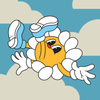Cap Carter on Independent Music, Community, and the Power of Vulnerability
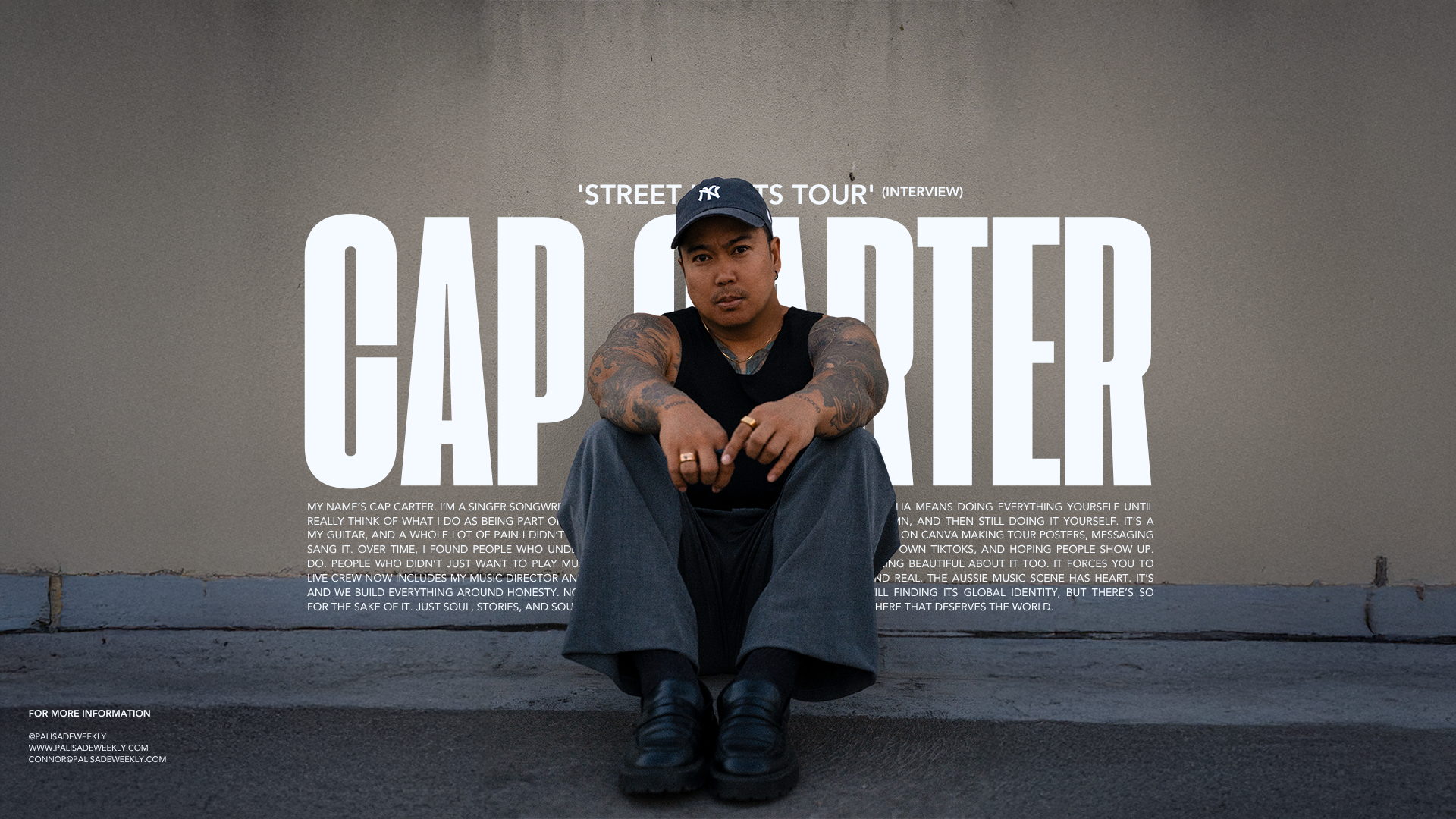
We had the honor of sitting down and having a conversation with Cap Carter, as he opens up about what it truly means to be an independent artist in Australia, from the DIY grind to deep community roots. We dive into the heart of his 'Holding Space' initiative, the lessons he’s learned from fans, and the power of staying real in the industry.
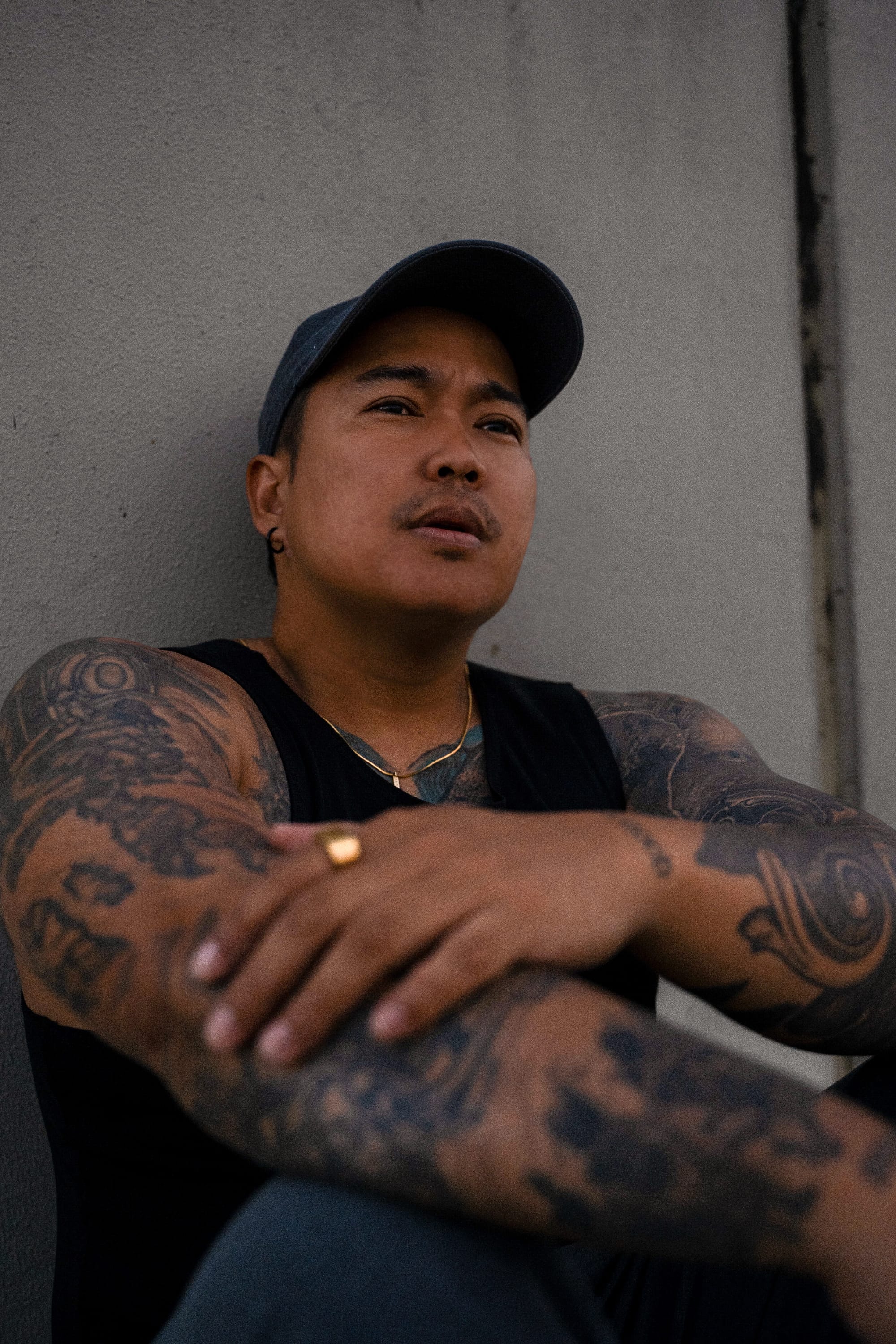
My name’s Cap Carter. I’m a singer songwriter from Western Sydney. I don’t really think of what I do as being part of a band. It started with just me, my guitar, and a whole lot of pain I didn’t know how to speak about, so I sang it. Over time, I found people who understood what I was trying to do. People who didn’t just want to play music but wanted to feel it. My live crew now includes my music director and tour manager Cam Nacson, and we build everything around honesty. Nothing fake. Nothing polished for the sake of it. Just soul, stories, and sound.
What it means to be an indie artist in Australia. What does the Australian music scene look like in your eyes?
Being indie in Australia means doing everything yourself until someone gives a damn, and then still doing it yourself. It’s a grind. It’s late nights on Canva making tour posters, messaging venues, editing your own TikToks, and hoping people show up. But there’s something beautiful about it too. It forces you to be resourceful and real. The Aussie music scene has heart. It’s still growing, still finding its global identity, but there’s so much raw talent here that deserves the world.
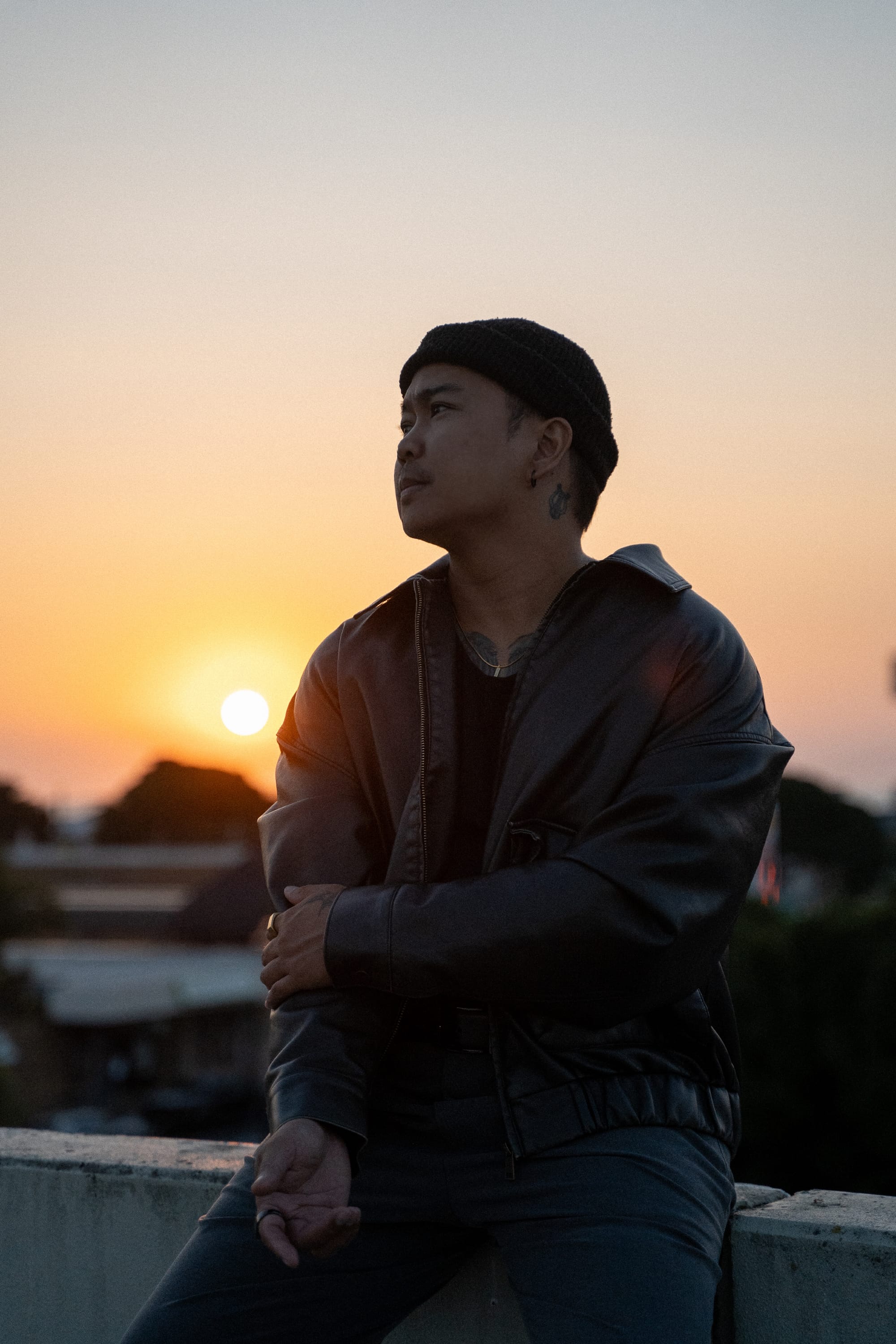
Coming from Western Sydney, how has your environment shaped your music and sense of community?
Western Sydney taught me how to survive, how to hustle, and how to look out for people. It’s a place where struggle and resilience live side by side. Growing up there gave me a deep sense of loyalty and a real understanding of pain, and that’s all over my music. I sing for the ones who feel unseen, unheard. I carry my community with me on every stage.
Your 'Holding Space' initiative is incredibly unique. What inspired you to start it, and what moments from it have stuck with you the most?
'Holding Space' came from the fact that I used to go to gigs alone. I’d be battling my own demons, anxiety, depression, you name it. And I’d see people in the crowd, just like me, who looked like they had no one. So I created 'Holding Space' as a place at my shows where people who come alone, or feel like they don’t belong, can meet others and feel safe. No pressure, no judgment. Just connection.
You’ve built a truly engaged fanbase, especially through TikTok. In an age of viral noise, how do you keep that connection meaningful and real?
I don’t post to go viral. I post to speak. Every caption, every video, I ask myself, would this have helped me back then? If yes, I post it. If not, I delete it. People can smell fake. But they also feel it when it’s real. I reply to DMs when I can, I check in on people, I go live, I talk, I listen. It’s not fan engagement. It’s real relationships.
What’s something you’ve learned from your fans that’s changed your outlook, musically or personally?
Vulnerability isn’t weakness. I used to think sharing too much would scare people off. Now I know it’s what brings us together. My fans have shown me that honesty is healing. Their stories have helped me make peace with parts of my own. They’ve taught me to keep showing up, even when it’s hard.
You’ve gone from supporting Teddy Swims to selling out your own international tours. Has your mindset shifted in how you approach performing live?
When I opened for Teddy, I was still figuring it all out. Now, when I walk on stage, I’m not just there to perform. I’m there to connect. I treat every show like a conversation. And the bigger the room gets, the more I want to make it feel small, like we’re all sitting in my lounge room and I’m just telling stories. There’s power in intimacy, even in big venues.
The "Streetlights" tour will see you at some of your biggest headline shows yet. What does that feel like, and how are you preparing differently this time around?
It’s wild. Scary and sacred all at once. I’ve dreamt of this for years. Now it’s real. I’m preparing by going deeper, not bigger. I’m stripping back the ego and focusing on the people. Rehearsals are less about hitting every note and more about feeling every word. I want people to walk away from Streetlights feeling like they’ve been seen, like something shifted in them. That’s the mission.
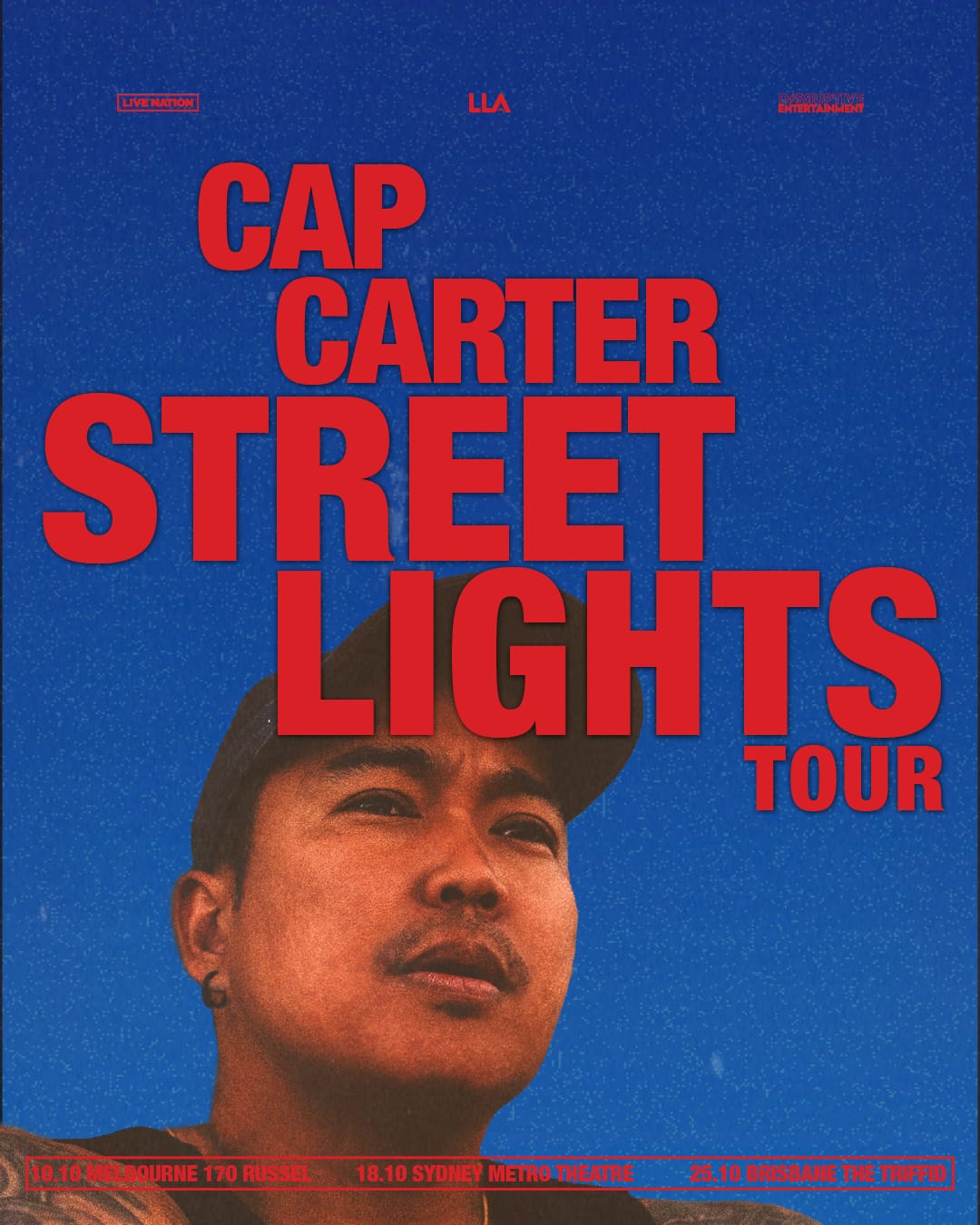
What advice would you give to artists who feel stuck between the pressure of labels and the uncertainty of going independent?
Don’t confuse validation with value. Just because a label hasn’t signed you doesn’t mean you’re not worthy. Independent doesn’t mean alone. Build your team, even if it’s two mates who believe in you. Know your worth. Freedom is expensive, but it’s worth every cent
If you had to define your mission as an artist in one sentence right now, what would it be?
To turn pain into purpose. For myself, and for anyone who needs to hear they’re not alone.
Looking ahead, how do you want your legacy to be remembered especially by the community you’ve built?
I want to be remembered as someone who didn’t just sing about healing but helped people heal. Someone who made music that saved lives, not just filled playlists. Someone who held space and taught others how to hold it too.

